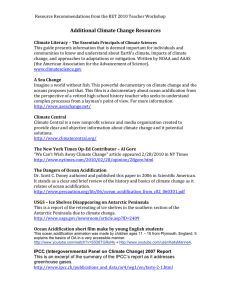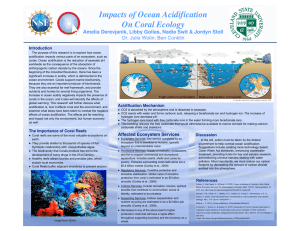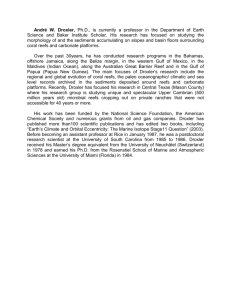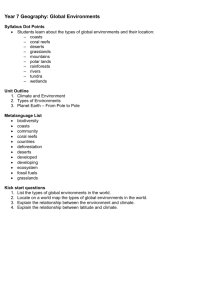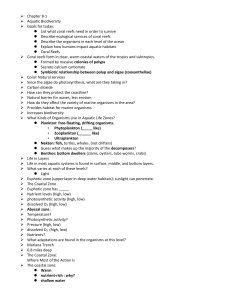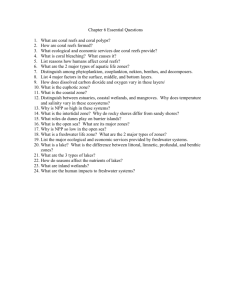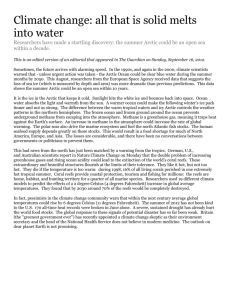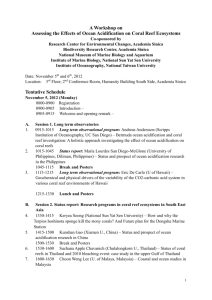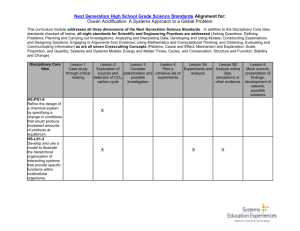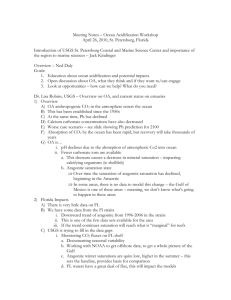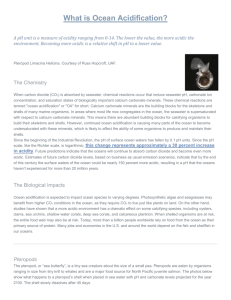7th Alexander von Humboldt International
advertisement
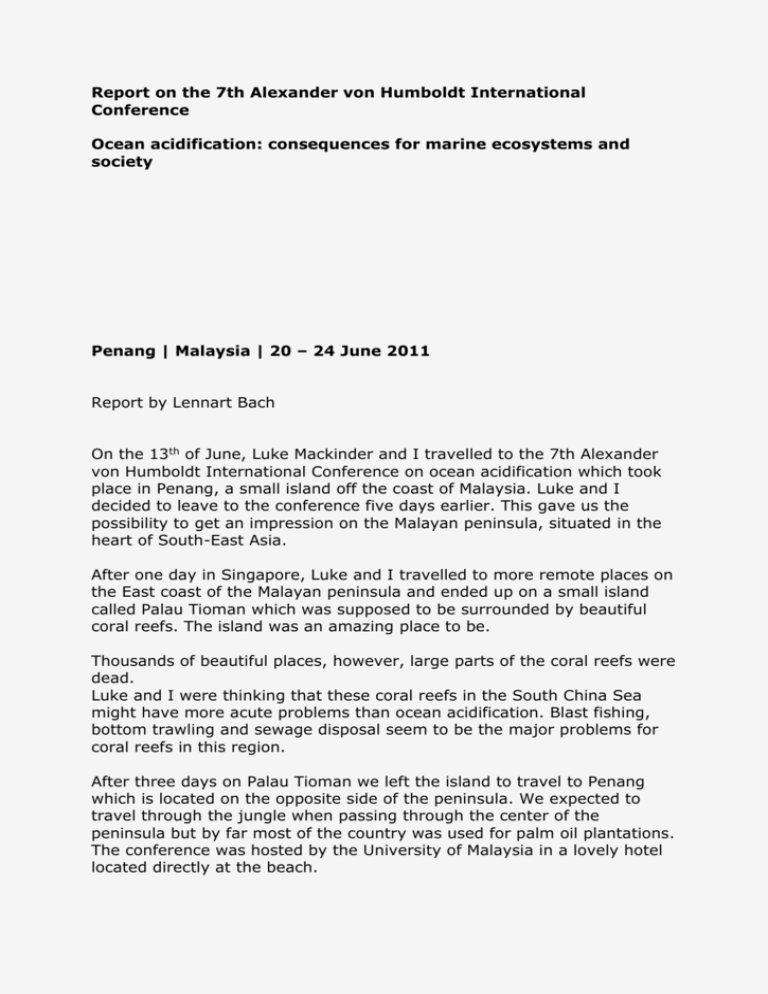
Report on the 7th Alexander von Humboldt International Conference Ocean acidification: consequences for marine ecosystems and society Penang | Malaysia | 20 – 24 June 2011 Report by Lennart Bach On the 13th of June, Luke Mackinder and I travelled to the 7th Alexander von Humboldt International Conference on ocean acidification which took place in Penang, a small island off the coast of Malaysia. Luke and I decided to leave to the conference five days earlier. This gave us the possibility to get an impression on the Malayan peninsula, situated in the heart of South-East Asia. After one day in Singapore, Luke and I travelled to more remote places on the East coast of the Malayan peninsula and ended up on a small island called Palau Tioman which was supposed to be surrounded by beautiful coral reefs. The island was an amazing place to be. Thousands of beautiful places, however, large parts of the coral reefs were dead. Luke and I were thinking that these coral reefs in the South China Sea might have more acute problems than ocean acidification. Blast fishing, bottom trawling and sewage disposal seem to be the major problems for coral reefs in this region. After three days on Palau Tioman we left the island to travel to Penang which is located on the opposite side of the peninsula. We expected to travel through the jungle when passing through the center of the peninsula but by far most of the country was used for palm oil plantations. The conference was hosted by the University of Malaysia in a lovely hotel located directly at the beach. The first two days of the conference were focused on impacts of ocean acidification on different kinds of organisms. It was interesting to see that most scientists from South East Asia focused much more on impacts on commercially important species such as oysters while scientists from western countries (especially Australian scientists) were focused on the impacts on coral reefs. On the third day the local committee organized a field trip for all scientists through the island of Penang. We visited a traditional fruit farm and the city center of Georgetown, which is located on Penang, and where we ate lots of traditional food, as you can guess from this fruit farm impression on the left. The fourth and fifth day of the conference were focused on the impacts of ocean acidification on the biogeochemistry of the oceans. A group of Malayan teachers were also attending some of the presentations and they explained that ocean acidification is virtually unknown in this part of the world. On Friday afternoon, one week of intense science communication was over. In summary, it was a great conference with a great atmosphere. The Malaysian hosts were so friendly and kind and we met so many new scientists from outside Europe and made lots of new friends. My attendance of the conference was possible due to the strong financial support by ISOS. That’s why I want to thank ISOS for having made this great experience possible! Lennart Bach
